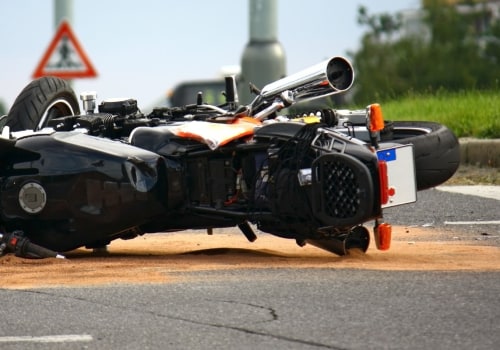As a new biker, it's important to understand the risks that come with riding a motorcycle. One of the biggest risks is getting into a collision. Even the most experienced bikers can have accidents, but as a new rider, you're even more vulnerable. That's why it's crucial to have the right insurance coverage in case of a collision. In this article, we'll discuss everything you need to know about motorcycle collision insurance for new bikers.
What is Collision Insurance?
Collision insurance is a type of coverage that pays for damages to your motorcycle if you're in an accident. It's an optional coverage that you can add to your motorcycle insurance policy. Collision insurance covers damages to your bike regardless of who is at fault for the accident.
Why Do You Need Collision Insurance?
If you're a new biker, you might be wondering if collision insurance is really necessary. After all, it's an optional coverage, and it might seem like an extra expense that you don't really need. However, there are several reasons why collision insurance is important for new bikers.
First of all, as a new biker, you're more likely to be involved in an accident. You're still learning how to handle your bike, and you might not be as experienced as other riders on the road. If you're in an accident, collision insurance can help cover the cost of repairs to your bike.
Secondly, if you're making payments on your motorcycle, your lender will likely require you to have collision insurance. This is because the lender wants to protect their investment in case of an accident.
Finally, even if you're a skilled rider, accidents can happen at any time. If you don't have collision insurance, you'll be responsible for paying for any damages to your motorcycle out of pocket. This can be a significant expense, especially if your bike is badly damaged.
What Does Collision Insurance Cover?
Collision insurance covers damages to your motorcycle if you're in an accident. This can include:
- Damage to the body of your motorcycle
- Damage to your motorcycle's engine
- Damage to your motorcycle's transmission
- Damage to your motorcycle's suspension
- Damage to your motorcycle's brakes
Collision insurance typically covers the cost of repairs up to the actual cash value (ACV) of your motorcycle. The ACV is the amount your motorcycle is worth at the time of the accident. If the cost of repairs exceeds the ACV, your insurance company will declare your motorcycle a total loss and pay you the ACV.
How Much Does Collision Insurance Cost?
The cost of collision insurance varies depending on several factors, including:
- The make and model of your motorcycle
- Your age and driving record
- Your location
- The amount of coverage you choose
As a new biker, you can expect to pay more for collision insurance than more experienced riders. However, the cost of collision insurance is typically much lower than the cost of paying for damages to your motorcycle out of pocket.
How to Choose the Right Collision Insurance Coverage
When choosing collision insurance coverage, there are several factors to consider. First of all, you should make sure you have enough coverage to pay for any damages to your motorcycle. This means choosing a coverage amount that is equal to or greater than the ACV of your bike.
You should also consider your budget when choosing collision insurance coverage. A higher coverage amount will typically result in a higher premium, so you'll need to find a balance between the coverage you need and the cost you can afford.
Additionally, you should research different insurance companies to find the one that offers the best coverage at the best price. Look for a company that has a good reputation for customer service and claims handling.
Conclusion
As a new biker, collision insurance is an important coverage to have. It can protect you from the financial burden of paying for damages to your motorcycle out of pocket. When choosing collision insurance coverage, make sure you have enough coverage to pay for any damages to your bike, but also consider your budget and research different insurance companies to find the best coverage at the best price.




